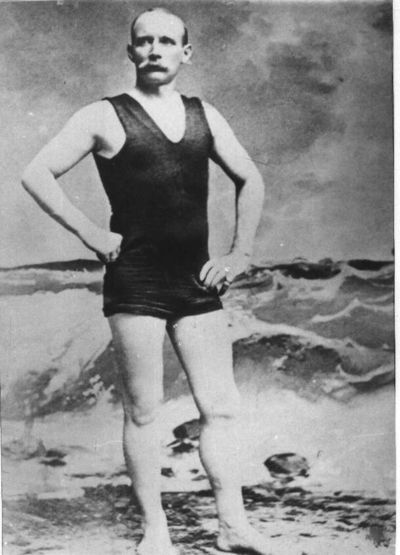The First Successful English Channel
Swim
·
August 25, 1875
·
Captain Matthew Webb dove into the channel from Dover’s
Admiralty Pier.
·
His mainstay is the breaststroke.
·
He is coated in porpoise fat as an insulator, three
boats follow to hand him cups of beef tea to assist.
·
At no time does he touch the boats—he remains swimming,
or treading water throughout the entire journey with no aid of float or additional
swimming aids.
·
He is badly stung by jellyfish along the way and yet
continues.
·
He reaches Calais, France after swimming a continuous
21 hours and 45 minutes.
·
Captain Webb later perished on July 24th, 1883.
·
He was attempting to swim under the falls at Niagara
when he was sucked into a whirlpool and drowned.
·
His solo channel swim remained untouched for 36 years—another
swimmer was not successful at the feat until 1911.
Shortest Fight With Gloves
·
1928
·
Al Foreman KO’d Ruby Levine.
·
Time 11.5 seconds and that time includes
the Referee’s Count.
·
Reports at Ringside state that Foreman
landed three punches.
Imagine that sprint from the corner to the flurry to
the drop.
Astonishing!
Resources for Livin’ the Old
School Warrior Life
The Black Box Store
https://www.extremeselfprotection.com/
The Indigenous Ability Blog
https://indigenousability.blogspot.com/
The Rough ‘n’ Tumble Raconteur
Podcast
https://anchor.fm/mark-hatmaker


Comments
Post a Comment